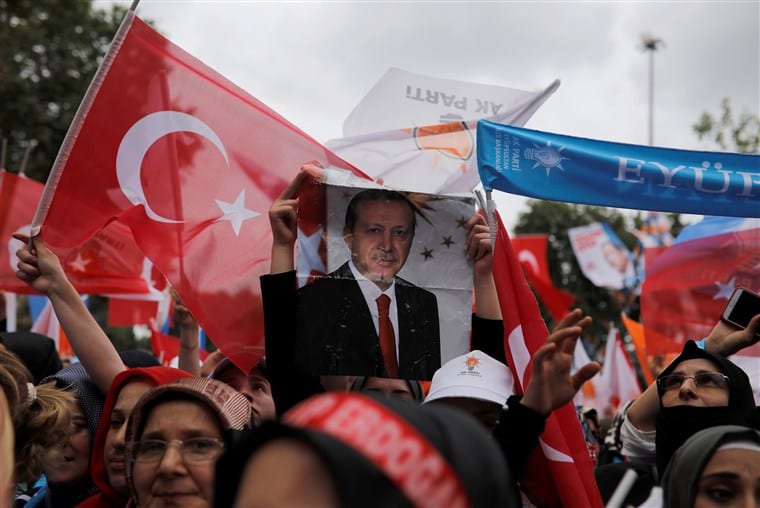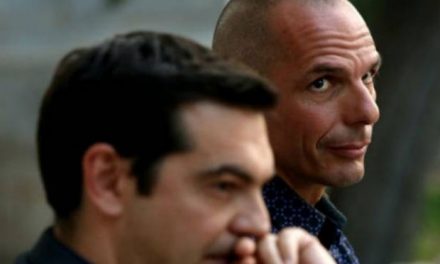By The Australian
What does a president have to do to destroy the trust of Turks?
Debauching the currency, poisoning relations with Europe and America, locking up tens of thousands of innocent people, muzzling the press, reigniting a civil war and fiddling with the constitution to gain the powers of a sultan surely ought to be enough. Recep Tayyip Erdogan has done all that and more in recent years.
When voters cast their ballots in presidential and parliamentary elections tomorrow, they should show him the door of his vast new palace in Ankara.
There was much to admire in Mr Erdogan when his Justice and Development (AK) party first took power in 2002. He showed that an Islamist party could govern with moderation; women in Turkey are free to wear what they like. The economy has boomed. GDP has more than doubled, and the results, in terms of roads, bridges and, above all, plentiful and cheap housing, are plain for all to see. The army was tamed, Kurdish-language rights were recognised and accession talks to join the European Union began in 2005.
But power rots leaders. As he becomes more autocratic, Erdogan is reversing his own achievements. Artificially low interest rates have caused a slump in the lira (down 55 per cent in the past four years), pushed inflation up to double digits and led firms to overload themselves with debt. After a period of breakneck growth, a hard landing seems imminent.
The war against Kurdish militants has resumed, both in the south-east of the country and across the border in Syria. As relations with NATO and the EU deteriorate, Erdogan has struck up an alliance of convenience with Russia.
The vicious attempted coup of July 2016 deserved to fail. But Erdogan’s revenge has been indiscriminate and disproportionate. About 110,000 people have lost their jobs in the army, the schools and the bureaucracy; more than 50,000 people were arrested, of whom 35,000 have been convicted.
Taking advantage of a climate of fear and a state of emergency, Erdogan pushed through a constitutional reform that turns Turkey from a parliamentary to a presidential system, greatly reducing the power of the legislature to check a now-mighty president — that is, himself. These changes were approved by a close referendum last year, amid credible allegations of cheating.
For all these reasons, Erdogan should go. Who should replace him is less obvious. Of the alternatives, Selahattin Demirtas, the leader of the HDP, the main Kurdish party, is impressive but has no chance of winning — not just because he is a Kurd in a country that mistrusts them, but also because he is campaigning from behind bars, having been jailed on trumped-up terrorism charges. On balance, Muharrem Ince, a former teacher who represents Kemal Ataturk’s old party, the CHP, is the best option. Despite the CHP’s statist instincts, Ince is a strong-minded and decent candidate. He has made a point of visiting Demirtas in prison; as the child of observant Muslims, he could win over some AK voters.
Polls suggest that Ince will find it hard to win even if he can force Erdogan into a run-off on July 8. That makes the parliamentary ballot especially important. There is a good chance that AK (and a smaller ally) will lose its majority. For that to happen, though, the HDP will have to clear a 10 per cent threshold or it will get no seats at all. Voters should opt for it wherever they can. Even if Erdogan wins re-election, an opposition-controlled chamber will be able to speak out against his abuses, block his decrees and perhaps reverse his constitutional changes. Any checks and balances are better than none. To stop the sultan, Turkey needs an effective opposition.



















